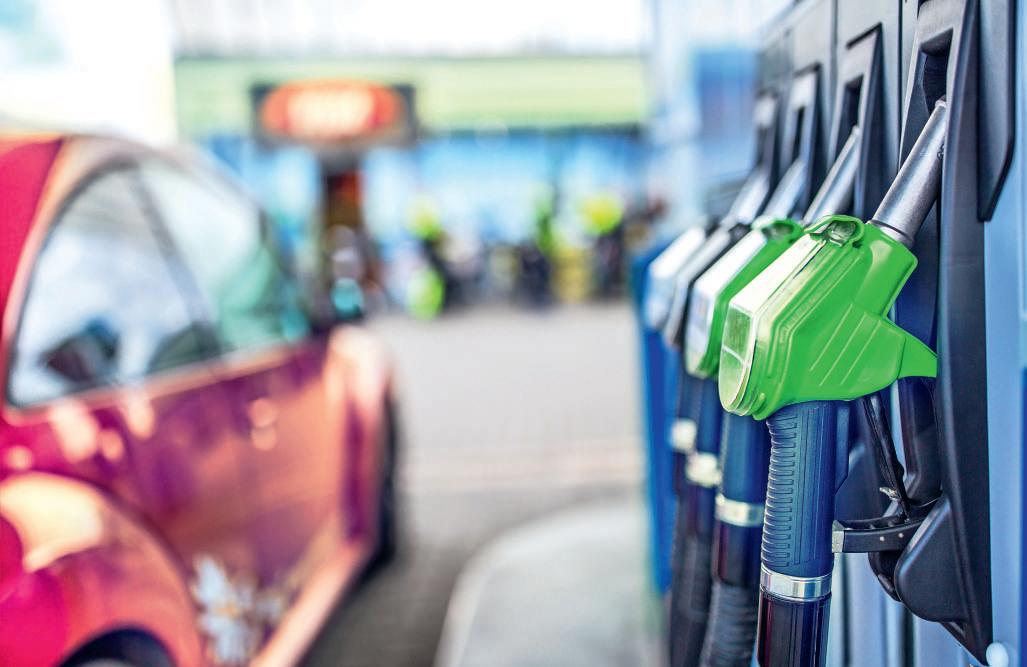
4 minute read
Sign Of The Times
Muhammad Ali Bandial ali@khaleejtimes.com
The UAE has always been known for its opulence and grandeur. With the country’s vast oil reserves, the gas station culture has been a crucial part of daily life in the UAE. However, with the world moving towards sustainable energy sources and the country’s commitment to achieving net-zero emissions by 2050, the face of gas stations in the UAE is changing.
Advertisement
The UAE government is taking a proactive approach to achieve their ambitious goal of transitioning to renewable energy and reducing carbon emissions.
One of the significant steps taken by the government is the launch of the UAE Energy Strategy 2050, which aims to increase the contribution of clean energy in the country’s total energy mix to 50 per cent by 2050. To achieve this, the UAE is focusing on investing in renewable energy sources like solar, wind, and nuclear energy.
As part of this transition, the UAE is also reimagining its gas stations. Many new gas stations in the UAE are now being designed to incorporate sustainable practices. These gas stations are not just offering petrol and diesel; they are also serving as a hub for renewable energy, providing EV charging stations, and promoting eco-friendly practices.
One of the innovative initiatives taken by the UAE’s gas stations is the installation of solar panels. These solar panels power the station’s electricity needs and provide surplus energy to the grid. This helps reduce the dependence on non-renewable sources of energy and promotes the use of renewable energy.
Another sustainable initiative taken by the UAE’s gas stations is the installation of EV charging stations. With the increasing demand for electric vehicles, the UAE is providing more EV charging stations across the country. Many gas stations have now started offering EV charging services to attract environmentally conscious customers. The EV charging stations are powered by renewable energy sources like solar power, making them a greener alternative to traditional petrol stations.
Moreover, the gas stations in the UAE are promoting eco-friendly practices like recycling, water conservation, and waste reduction. These practices are implemented by using sustainable materials for construction, reducing plastic usage, and implementing water-saving measures. Many gas stations in the UAE are now adopting green roofs, which helps reduce heat absorption and improve air quality.
In addition to this, the UAE’s gas stations are now becoming a one-stop-shop for convenience and sustainable prac-
Quarter Page (26cms x 14.50cms)
tices. These gas stations are now offering sustainable products like reusable water bottles, eco-friendly snacks, and organic coffee. This shift towards sustainable practices not only promotes a healthier lifestyle but also creates a more positive impact on the environment.

One company that has been playing its part in the march towards sustainability has been the Abu Dhabi National Oil Company (ADNOC), which has catalysed the collective energy transformation drive. Since its creation half a decade ago, ADNOC Distribution has pioneered the service station experience by investing in countless new offerings. However, the journey is far from over and as a futurefocused company, ADNOC Distribution dreams big, standing at the forefront of change and sustainability, diversifying its offerings and responding to the demands of customers and shareholders alike.
One of the innovative initiatives taken by the UAE’s gas stations is the installation of solar panels. These solar panels power the station’s electricity needs and provide surplus energy to the grid. This helps reduce the dependence on nonrenewable sources of energy and promotes the use of renewable energy.
ENOC has also been playing its part with one of its flagship initiatives being the ENOC Service Station of the Future (SSoF), located at the Expo 2020 Dubai site. The SSoF is a showcase of sustainable technology and features, and the first service station in the world to receive the LEED platinum certification. The SSoF also features a 25-metre wind turbine that generates 12.7 MWh of wind energy every year, and 283 solar PV panels that generate 143 MWh of solar power every year. The station deploys carbon filtration technologies to recycle and re-use grey water, condensate water, and storm water for irrigation, and reduce outdoor water consumption. Additionally, the station is equipped with drinkable air units that produce water from ambient humidity for the staff on site. Finally, gas stations are starting to incorporate technology into their operations. This can be seen in the use of mobile apps to pay for fuel, or in the use of AI to optimise the use of energy within the station. The growing use of smart devices is driving the adoption of cashless payments in petrol pumps. The options today include paying with debit/credit cards, digital wallets, as well as Radio Frequency Identification (RFID) tags that deduct the amount from a registered account. These smart payment solutions are enabling people to manage their accounts from anywhere and anytime using smartphones or tablets. Enabling such payments demonstrates the UAE’s commitment to the Smart City initiative, and drives innovation and enhances customer experience.
Overall, the changing face of gas stations in the UAE is a reflection of the country’s commitment to sustainability. By embracing alternative fuels, incorporating sustainable design elements, and incorporating technology into their operations, gas stations are playing a key role in helping the UAE reach its goal of net-zero emissions by 2050.
The changing face of gas stations in the UAE is a testament to the country’s commitment to sustainability. The UAE’s transition towards renewable energy and sustainability is not just limited to gas stations; it is being implemented in various sectors like transportation, construction, and manufacturing. The country’s ambitious goal of achieving net-zero emissions by 2050 is a challenging task, but the UAE’s innovative and sustainable initiatives are paving the way towards a greener future.
Quarter Page (26cms x 14.50cms)
Member of ENOC Group



